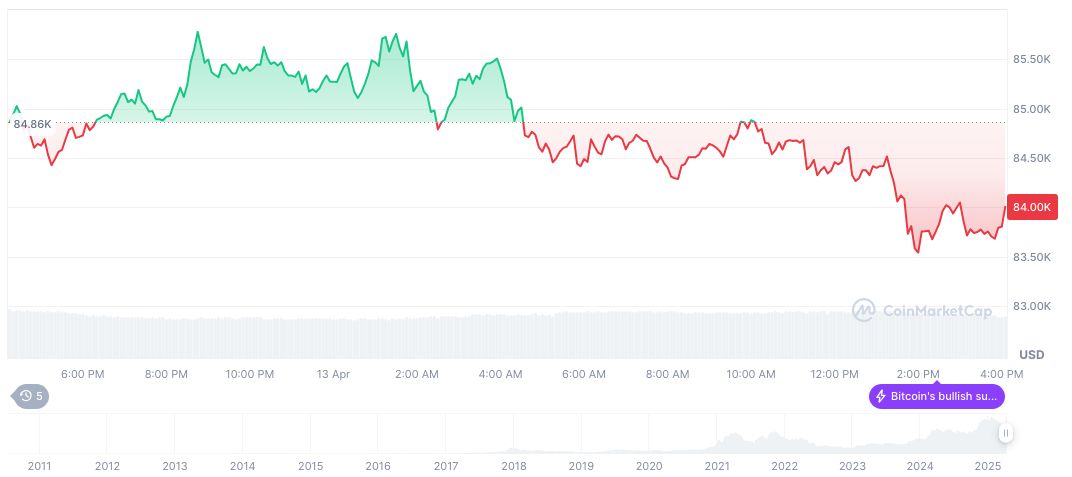- Donald Trump’s tariff policies impact U.S. dollar markets.
- Decline in dollar sparks 5-year high in hedging interest.
- Bitcoin rises as a hedge against dollar weakness.
The imposition of tariffs by the Trump administration has decreased the U.S. dollar Index by 1.8% since April 2, 2025, stirring global markets and boosting hedging demand.
These structural changes impact global economic confidence, resulting in increased Bitcoin investment.
U.S. Policies Trigger Record Hedging on Dollar Concerns
U.S. tariff policies have sparked concerns regarding the dollar, prompting institutional and individual investors to reconsider risk exposure and hedge against depreciation. The demand for dollar put options has now surpassed that for call options, showing increased interest in hedging against a weaker dollar. According to Chris Weston of Pepperstone Group, this trend reflects a broader structural shift, not merely a short-term change.
The market is reacting to declining confidence in the dollar, with a notable demand for protective hedges. The dollar’s outlook is currently impacted by these policies, as highlighted by the negative three-month risk-reversal index figures. Financial entities and investors are responding strategically to these conditions by reallocating and adjusting their portfolios, emphasizing protections against further dips. For an analysis of economic impacts from Trump’s trade policies and tariffs, see the Tax Foundation’s research.
Chris Weston, Research Head at Pepperstone Group Ltd., “Market aversion to holding the dollar still prevails,” framing this as part of a larger structural adjustment rather than a transient issue.
Bitcoin’s recent rally of 5.5% is attributed to the perceived weakness of the dollar, positioning it as a robust hedge against monetary instability. Industry voices, such as JPMorgan Chase CEO Jamie Dimon, emphasize the precarious state of global finance, with Bitcoin emerging as a potential safeguard against economic volatility. Dimon stated, “Concerns over broader market instability are palpable, including the vulnerability of the $30 trillion U.S. Treasury market… Bitcoin could serve as a hedge amid this financial turbulence.”
Bitcoin and Crypto Markets React to Economic Shifts
Did you know? In past global crises, cryptocurrencies like Bitcoin rose significantly as hedge assets, notably during the COVID-19 pandemic’s onset in March 2020 when markets faced severe volatility.
Bitcoin (BTC) is recently priced at $84,418.59 with a market cap of 1.68 trillion. CoinMarketCap notes a 9.1% uptick in its 24-hour trading volume, despite minor changes in the past 24 hours. Bitcoin continues to dominate, holding 62.66% of the digital asset market.

The research team at Coincu highlights that these tariff-induced fluctuations could spur increased regulatory scrutiny. As cryptocurrencies gain attention as alternative hedges, there may be strides in regulatory frameworks to accommodate adoption, thereby cementing their role as financial staples amid geopolitical economic shifts.























